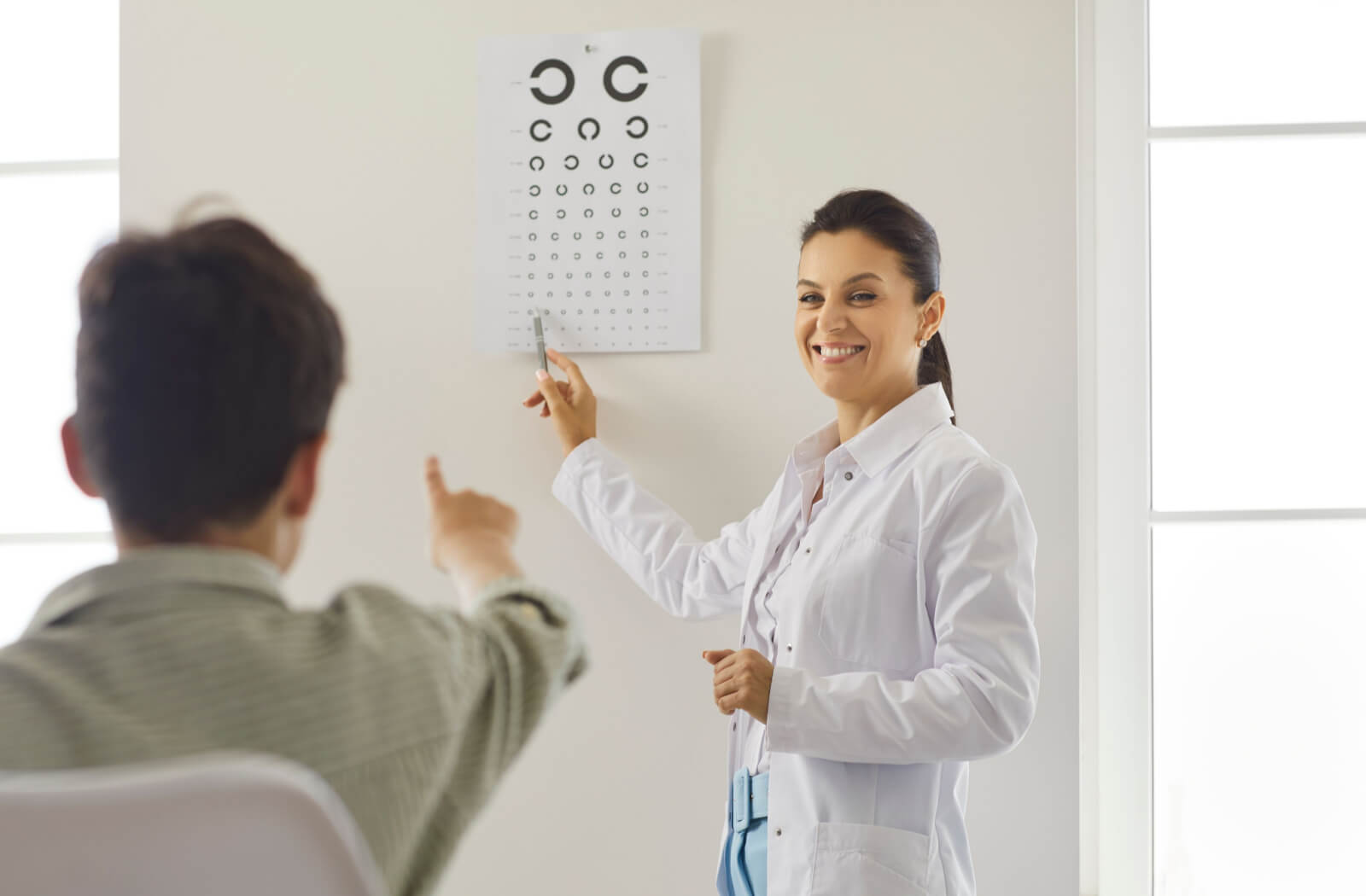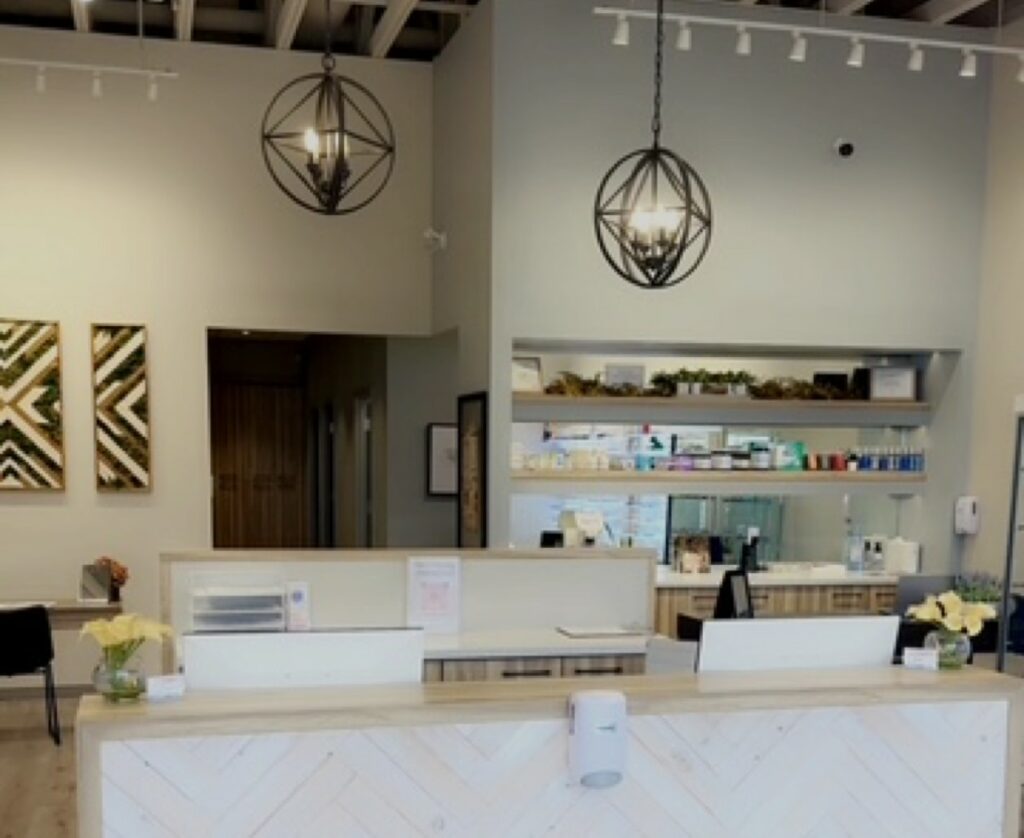According to the Canadian Association of Optometrists (CAO), comprehensive eye exams are critical to caring for our eyes. While many of the tests are the same or similar between an adult and a child, a children’s eye exam is done with issues specific to children in mind.
This article will give you an overview of what you can expect when you visit the eye doctor with your child. We’ll also go over the importance of these exams and how they differ from a vision screening your child may receive at school or the doctor’s office.
What to Expect at a Kids’ Eye Exam
Going to the optometrist can be intimidating for many kids (and their parents). So, understanding what to expect beforehand can go a long way to making an anxiety-free and enjoyable visit.
Each eye exam differs slightly from the next and is structured based on your child’s specific needs. But here are a few things you can expect broken up by general age groups.
Infants
Common infant testing includes:
- Checking vision acuity and fixation
- Ensuring proper eye alignment
- Looking for signs of hidden eye disease or refractive error
- Ensuring proper eye pressure (by feeling)
- Assessing the overall eye health, front and back
Toddlers & Pre-Teens
Along with the same tests infants get, toddler and pre-teen testing includes:
- Looking in-depth for ocular health issues
- Assessing colour vision
- Assessing any vision deficiencies and correcting them
Teenagers
Most of the testing for infants through pre-teens also applies to teenagers. But the most significant difference is the tools used and how in-depth the testing is.
Importance of Pediatric Eye Exams
Eye exams are important for children and adults alike, but they’re even more important for kids because their eyes are in a constant state of change. As a child’s body grows and develops, their eye health can change rapidly and without notice.
When a child gets an eye exam every year, they will typically have an up-to-date prescription. And a child with strong, clear vision will often have a better chance of success in school. On the other hand, if any eye diseases or vision problems develop and go unchecked, they can cause issues that impact your child in the long term.
Regular eye exams increase the chances problems are caught and dealt with before there is lasting damage.
Vision Screening vs. Comprehensive Eye Exam
Some doctors or school nurses may perform vision screening tests from time to time as regular checkups. There’s nothing wrong with these tests, but they shouldn’t replace a comprehensive eye exam performed by a qualified optometrist.
A vision screening tests how well a child can see from various distances. They can also be a useful tool that alerts the professional to nearsightedness (myopia) or severe amblyopia (lazy eye) in a child. But they don’t check or take into account the overall health of your child’s eyes.
How Often Should a Child Get an Eye Exam?
The Canadian Association of Optometrists has created an evidence-based schedule to guide Canadians on when their eyes should be checked. Remember that this is a “minimum requirements” type of schedule, and your optometrists may recommend a more frequent schedule based on your child’s individual needs.
Guidelines for children to the age of 19 are:
- Birth to 24 months: At least one exam between 6 and 9 months
- 2 to 5 years: At least one exam
- 6 to 19 years: Annual exams (unless otherwise recommended by an optometrist)
Preparing Your Child for the Exam
Many optometrists who deal with children are typically good at putting children’s concerns to rest by explaining the process as it happens. Let’s face it, kids always want to know, “why?”
For young children who don’t have much experience visiting doctors of any kind, one of the best things you can do is discuss how the optometrist wants to check their eyes to ensure they’re healthy. It also helps to ensure your child is well-fed and rested before the visit!
Older kids and teenagers will likely need less prep for a comprehensive eye exam. But if you won’t be in the room with your older child, make sure you tell them about any important family health history.
Arranging an Exam for Your Child
You and your child have nothing to worry about when it comes to your kid’s eye exam. It’s a routine appointment that can only benefit the child. If you have any questions, give our office a shout. The helpful and knowledgeable staff at Legacy Eye Care are happy to get you the answers you need or book your child for an appointment to see one of our optometrists.








